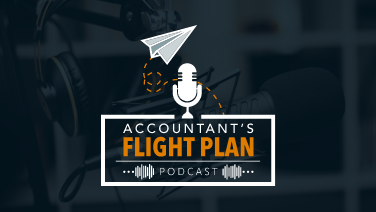Due Diligence in an accounting practice sale always varies from buyer to buyer, but I’ve talked with buyers who like to start the purchase process something like this: “Hello, my name is Tom. It’s very nice to meet you, can I please see your top 10 client files and your tax returns from the last three years?” To which we say…”Slow down…hold your horses.”
Due diligence is essential to any large purchase you make, especially so with a large financial investment like purchasing a CPA/ accounting firm. It can be overwhelming if this is your first accounting firm acquisition, there is a lot of information that you should verify before the sale is completed. There are a few tips that can help ease the due diligence process for accounting firm buyers including splitting it into two phases and focusing on 7 main areas of information to review.
What is CPA & Accounting Practice Due Diligence?
Due diligence of a CPA practice is usually not as complicated as many buyers first believe it to be. Due diligence when buying a CPA firm should be thorough, but it’s not like a formal audit. In fact, in many cases, most of the review can take place over a weekend.
It’s important to approach the process in the right order. Focus first on the very high-level information and wind your way down to the more detailed information. We’ve seen buyers want to jump right into the details and once that happens, it can interfere with being able to grasp the big picture. Most of the high-level information is gathered through inquiry. When you “get into the weeds” you are essentially verifying the information previously conveyed.
WE LIKE TO DIVIDE THE DUE DILIGENCE PROCESS INTO TWO DISTINCT PHASES.
Phases of Accounting Firm Purchase Due Diligence:
Poe Group Advisors has found that splitting due diligence into two phases is more efficient and saves time. It can save time if the parties are not in agreement with price and terms. It also helps the purchaser to evaluate each opportunity from a broader perspective before going into a tremendous amount of detail.
The 2 phases are separated by the purchase agreement.
Initial Phase of Due Diligence
In the initial phase, we want the buyer to have a clear picture or “vision” of the practice. The buyer should develop some comfort with the seller and allow the seller to get comfortable with the buyer. Buyers should ask questions in this phase.. Inquiry can often provide the vast majority of the information you need. Some summary reports that give you additional perspective are appropriate in some cases as well. An example would be a receivables aging summary (without client names.) Before a purchase agreement is ever drafted, please assume for the time being that the answers are accurate and complete. You should get all the information that you feel is necessary so that you are able to make an informed offer on the accounting practice.
Second Phase of Due Diligence
Once an agreement has been successfully completed, you would then move on to phase 2 of due diligence. The purchase agreement should include a condition for due diligence. At Poe Group Advisors, we like to call this the “verification stage” of due diligence. Essentially, this is where the buyer will be verifying that the vision developed in phase one is accurate and complete. This is when the buyer can request more sensitive documents such as bank statements, tax returns, sample files, etc.
7 Main Areas to Focus on During Due Diligence:
Get to Know the Accounting Practice Seller: It’s amazing what can be learned through good dialog. Do you trust the seller? Trust is extremely important.
- Understand Existing Accounting Firm Staff: Anticipate any competitive threats, as well as future hiring needs.
- Understand the Accounting Practice Clients: Know the client industries and ages, as well as the level of complexity of the client work.
- Review the CPA Firm’s Billing/Pricing Practices: Understand how appropriate the fees are for the value of the work being done. If they are low, this is not necessarily a deal breaker. In fact, it might mean the practice is a bit of a bargain. (Fee increases can be implemented if done well. Check out Accountant’s Flight Plan for more information on accounting practice fee increases.)
- Review Firm Client File: Review a sample of client files to understand the quality of the current practice’s working papers.
- Review Reported Practice Revenues: Tie reported revenue to tax returns and/or bank statements.
- Review Firm’s Accounts Receivable: (Even though accounts receivable are typically not included in the purchase.) It’s helpful to know how clients pay and which ones are slow to pay.
Remember to trust your instincts and be prepared to ask questions. If you were an auditor, keep materiality in mind. Don’t get hung up on the little stuff….probably 80% of what truly can impact your decision can be determined rather quickly and easily. If you are looking to buy or sell an accounting practice, POE Group Advisors can help! Contact our accounting acquisition experts today to learn more about acquiring or selling a CPA firm.
*This article was updated in August of 2023 with new information







